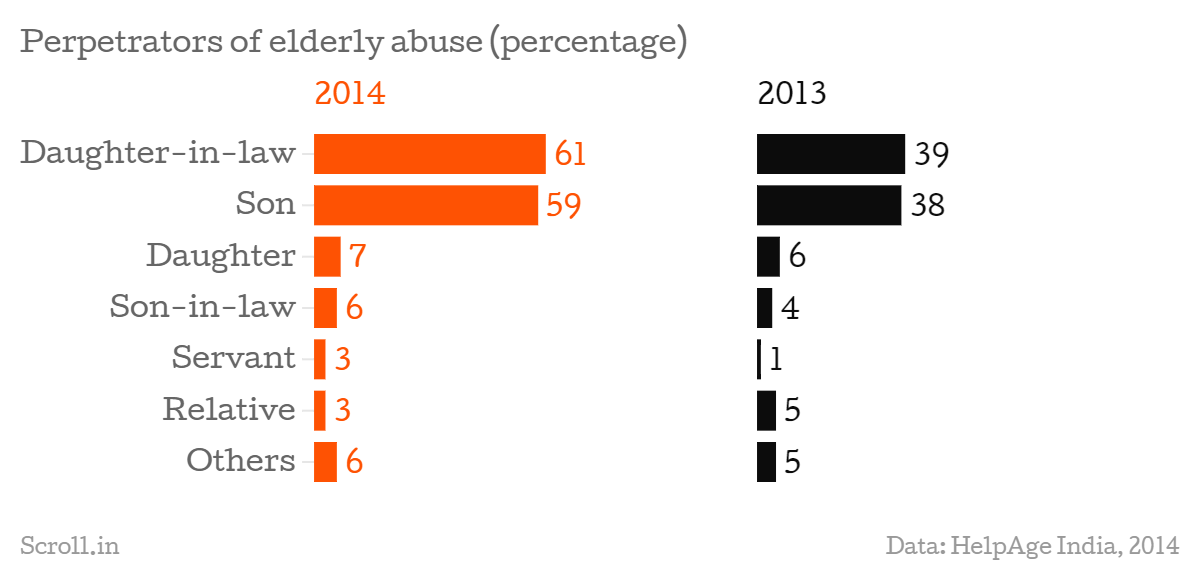The survey, conducted by the non-governmental organisation HelpAge India shows that every one in two senior citizens reported as having faced some form of elderly abuse. However, daughters-in-law and sons form the most common offenders by a huge margin. This comes in the backdrop of the organisation’s estimate that the 80+ age group is one of the fastest growing population demographics in the country, with over 100 million elderly already.
According to the report, 59% of the abused elderly reported abuse by sons while only 7% reported facing abuse by their daughters. While this appears like a gendered phenomenon, as many as 61% of those surveyed reported abuse by daughters-in-law. The current survey, however, shows a marked increase in the number of instances involving sons and daughters-in-law. Last year, the corresponding figure for abuse by sons was 38%, and 39% by daughters-in-law*.
The shocking insight of the survey proved to be the big skew in metros such as Mumbai where the elderly reported involvement of daughters-in-law in abuse in 92% of the instances.

*The methodology of the 2014 survey allowed multiple choices to the respondents, unlike in 2013.
While the rate of elderly abuse is already alarming, a substantial 46% of the abused also said that they faced abuse for a period of 3-5 years, which points to a larger problem of continued mistreatment of the elderly in households. About four percent of the elderly are facing abuse from more than 15 years.

The survey also brings to light the frequency of abuse which is a more specific indicator of the prevailing attitudes around the care of the elderly in the country right now. As many as 17% of the abused revealed that they experienced abuse ‘almost daily’ while another 35% of them said that they face abuse ‘once a week’.
Even though elderly abuse is so widespread and prevalent in the Indian households, many instances simply go unreported. According to the NGO, a whopping 41% of the abused confessed to not reporting the abuse to anyone. However, the trend might be in for a reversal if the last years’ figures are to go by. The rate of reporting has risen from just 30% in 2013 to a high 59% this year.

It may not be hugely surprising, but is worth highlighting that of those elderly who chose to report abuse, most confided in their friends and relatives. Only about 10% reported abuse to the police.










